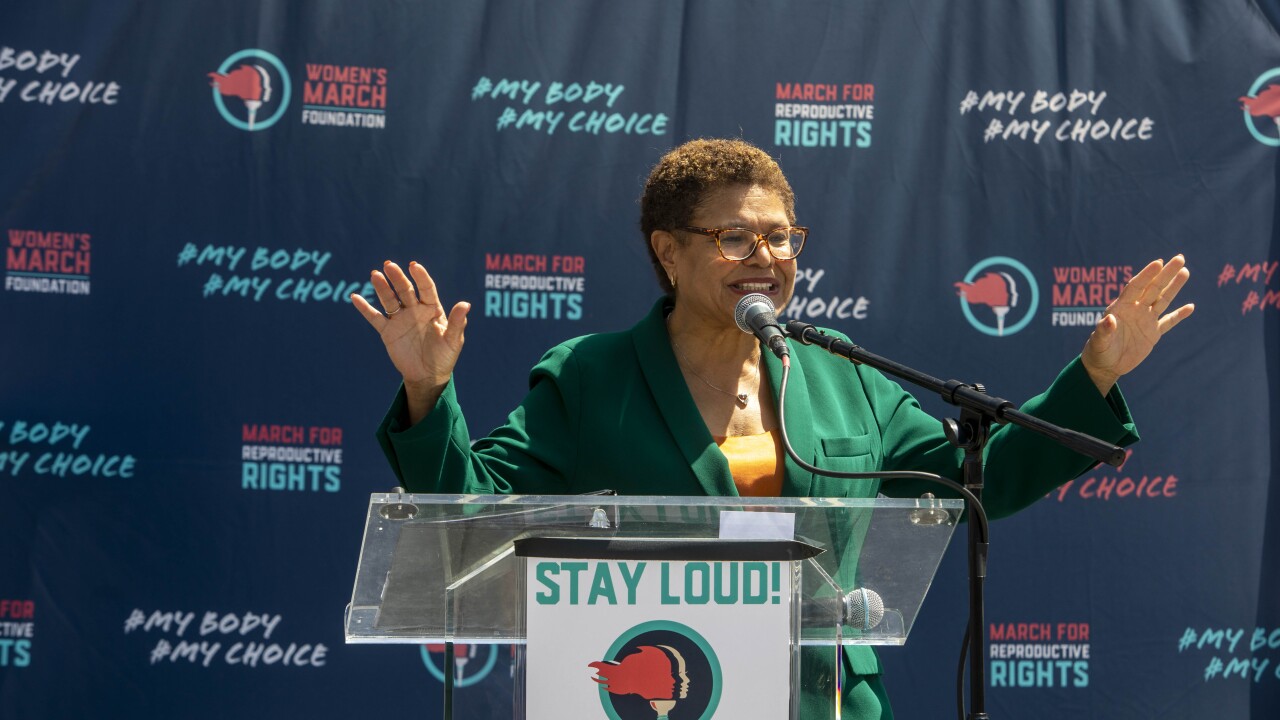PHILADELPHIA — The Government Finance Officers Association is trying to galvanize public officials to pressure federal banking regulators into more permissive rules classifying municipal securities as high-quality liquid assets under the liquidity coverage ratio (LCR) rule adopted last year.
Dustin McDonald, director of the Government Finance Officers Association's federal liaison center, spoke about the HQLA push to GFOA conference attendees Sunday along with Mitch Rapaport, an attorney at Nixon Peabody in Washington. The two beltway insiders warned the hundreds of officials in the room about the potential impact of the regulators' failure to classify muni bonds as HQLA.
The bank liquidity rule, which took effect Jan. 1 and requires full compliance by Jan. 1, 2017, was adopted by the Federal Reserve Board of Governors, Office of the Comptroller of the Currency, and Federal Deposit Insurance Corporation late last year. It was designed to ensure that large banks and other financial institutions have enough HQLA that could quickly and easily be converted to cash with little or no loss of value during periods of financial stress. It requires that banks with at least $250 billion of total assets or consolidated on-balance sheet foreign exposures of at least $10 billion hold a certain amount of HQLA.
Bank regulators said they did not include munis as HQLA in the rule because they are not liquid or easily marketable. The Fed recently proposed to include liquid uninsured investment-grade general obligation bonds as HQLA, but the OCC and FDIC have not.
Rapaport said the largest bank holders of muni bonds are Wells Fargo, Citi, JPMorgan Chase & Co., and Bank of America - all of which are primarily regulated by the OCC and would not be allowed to hold munis as HQLA even if the Fed's proposal is eventually approved.
"The concern is that municipal bonds might not be so attractive to these banks," Rapaport said.
McDonald said the GFOA is concerned that in a crisis situation, issuers could go to banks to do bond deals and the banks will ask for extra basis points as a result of this rule.
"That's our real big concern going forward."
McDonald told issuers that they need to be focusing on getting the OCC and FDIC to allow munis to be HQLA, and said they could do that through a bill introduced by Rep. Luke Messer, R-Ind., on May 1. That bill would require all of the banking regulators to treat all investment grade and actively traded munis as HQLA. GFOA was among sixteen market groups that sent a letter to House Speaker John Boehner, R-Ohio, and other members last week urging them to co-sponsor the bill.
"It really doesn't have any partisan angle to it," McDonald told conference attendees. "It has a much better chance of moving forward if we can get a large number of co-sponsors on the bill."
The bill already has several co-sponsors on both sides of the aisle, including prominent members of the House Financial Services Committee that has oversight over banking.
McDonald said he hoped the bill could move forward in the legislative process later this summer.





